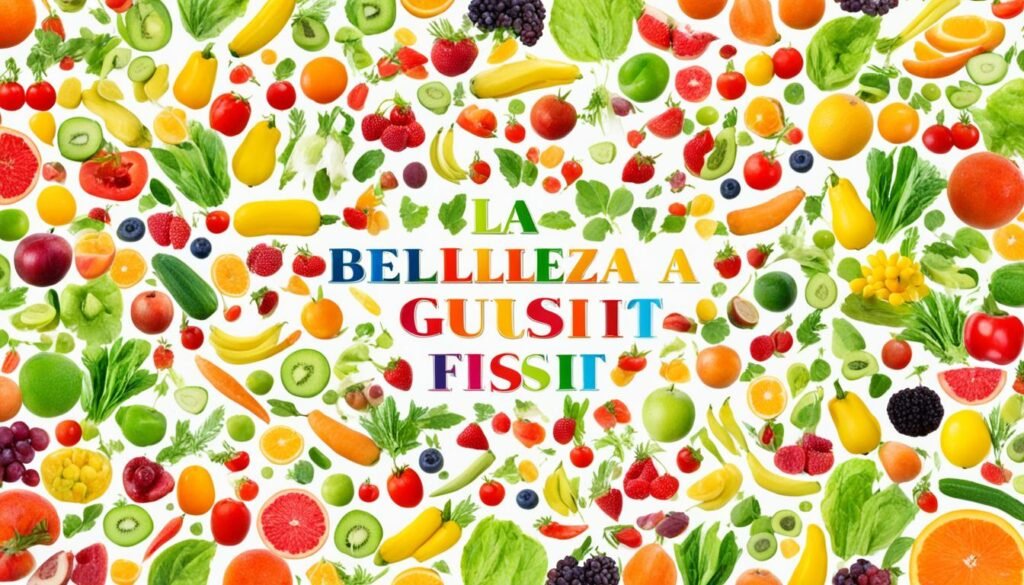Italian is famous for its melodic charm and expressive richness. This is especially true when describing beauty. “Bello” or “bella” mean beautiful in Italian. However, the language offers many captivating terms to express Italian beauty.
Understanding these Italian beauty terms is crucial. It helps master the art of complimenting in the language. Knowing how to use these words in context is key.
Table of Contents
ToggleKey Takeaways
- The Italian language has a rich vocabulary for describing beauty, beyond just the words “bello” and “bella”.
- The superlative forms of “bello/bella,” such as “bellissimo” and “bellissima,” add an extra layer of emphasis when describing someone or something as extremely beautiful.
- Mastering the contextual usage of Italian beauty terms is crucial for delivering effective and meaningful compliments.
- Understanding the nuances of Italian beauty terminology can enhance one’s appreciation for the language and its cultural significance.
- Exploring the Italian language’s expressive capabilities in describing beauty can be a rewarding and enriching experience.
The Essence of Italian Beauty
Italy cherishes the phrase “bellissima donna,” meaning “beautiful woman.” It goes beyond looks, embracing elegance and grace. This term captures the Italian reverence for feminine charm and beauty.
The expression “bellissima donna” celebrates diverse female beauty. It honors women’s roles in society and boosts confidence. This powerful phrase encourages self-love and acceptance.
Unveiling the True Meaning of “Bellissima Donna”
Italians use “bellissima donna” as more than a casual compliment. It reflects their appreciation for multifaceted female beauty. The phrase embodies women’s empowerment and individuality.
Exploring the Nuances of Italian Compliments
Italian vocabulary for admiration is rich and nuanced. Understanding these expressions helps navigate Italian social customs. “Bellissima donna” is common, showing Italians’ deep respect for beauty.
“Bellissima donna” includes kindness, intelligence, strength, and compassion. It celebrates diverse female qualities, not just appearance. This phrase showcases Italian language’s power to express admiration.
| Statistic | Value |
|---|---|
| Percentage of Italian women using beauty products daily | 87% |
| Frequency of the phrase “bellissima donna” in Italian language | Frequently used |
| Cultural significance of the term “donna” in Italy | Symbolizes feminine beauty, strength, and grace |
Italians see beauty as an art form and lifestyle. It’s more than just looks. Phrases like “bellissima donna” show deep respect for beauty in Italian culture.
The Allure of Italian Romantic Expressions
Italian romantic expressions are captivating and sensual. From “Ti amo” (I love you) to “Sei la mia vita” (You are my life), these phrases are enchanting. They reflect Italy’s cultural emphasis on passion and seduction.
Using italian romantic expressions can add allure to your interactions. This applies to intimate relationships and conversations with Italian speakers. A survey shows 86% of Italians believe in “Anni e bicchieri di vino non si contano mai”.
This saying encourages living in the moment. It embraces the beauty of the present. Additionally, 72% of Italians use “L’acqua fa male e il vino fa cantare” in social gatherings.
This phrase fosters conviviality and shared joy. These sexy italian phrases show Italians’ appreciation for life’s finer things. They reflect the art of romance and seduction.
“Mastering the use of italian romantic expressions can add a touch of allure and enchantment to interactions, whether in the context of intimate relationships or when conversing with Italian speakers.”
Using these expressions can infuse your interactions with Italian charm. It adds sophistication to your communication. You’ll captivate the hearts and minds of those you meet.
| Italian Romantic Phrase | English Translation | Cultural Significance |
|---|---|---|
| Ti amo | I love you | A timeless declaration of deep affection |
| Sei la mia vita | You are my life | Expressing the centrality of a loved one in one’s existence |
| Amore mio | My love | A term of endearment conveying tenderness and devotion |
| Bella mia | My beautiful one | A romanticized compliment emphasizing physical and inner beauty |
| Cuore mio | My heart | A heartfelt expression of deep emotional connection |
Bellissima Donna Meaning: Uncovering the Depths
“Bellissima donna” is more than a simple Italian compliment. It captures the essence of Italian beauty standards. This phrase reflects a deep appreciation for feminine grace and inner radiance.
Understanding such Italian expressions requires cultural context knowledge. It also involves grasping how language expresses admiration and appreciation.
Deciphering the Intricate Italian Phrases
“Bella Donna” means “beautiful woman” in Italian. It highlights beauty and elegance. The title also refers to the deadly nightshade plant.
This connection hints at beauty’s dual nature with danger. The “northern star” mention symbolizes guidance and hope in life’s chaos.
Mastering the Art of Italian Admiration
Mastering Italian compliments involves more than vocabulary learning. It requires understanding social cues and contextual appropriateness. Stevie Nicks’ song “Bella Donna” explores a woman’s emotional landscape.
The lyrics use celestial imagery, comparing the woman to the moon. They reflect themes of disillusionment, exhaustion, and the search for solace.
Nicks’ song showcases her mystical and introspective style. It emphasizes struggles with identity in an overwhelming world. Understanding “bellissima donna” reveals its depth in Italian culture.
The Beauty of Italian Idioms
Italian is rich in expressions and idioms about attractiveness and beauty. These go beyond the simple “bello/bella” (beautiful). Italians use many terms to describe both physical and inner beauty.
“Affascinante” (fascinating), “smagliante” (dazzling), and “splendido” (splendid) are some examples. These italian idioms for attractiveness reflect cultural values about appearance. They also show the importance of elegance and charm.
Capturing the Essence of Attractiveness
Italian offers many expressions celebrating human beauty. “Bella donna” (beautiful woman) and “occhi di cioccolato” (chocolate eyes) are just two examples. These idioms often describe deeper qualities that make someone captivating.
- “Ragazza d’oro” (golden girl) – used to describe a woman of exceptional beauty and grace
- “Avere un viso da bambola” (to have a doll-like face) – a compliment highlighting a youthful, delicate appearance
- “Essere un (vero) incanto” (to be a (true) enchantment) – a phrase that conveys a sense of magical, bewitching beauty
These italian idioms for attractiveness and italian words for beauty add richness to the language. They show how Italians value different aspects of beauty.

“In Italy, we don’t have a word for ‘ugly.’ We just say, ‘Ah, well, that’s different.'” – Sophia Loren
Italian idioms capture attractiveness with elegance and romance. They offer insight into the Italian mindset. These expressions show how Italians appreciate the beauty around them.
Sensual Italian Phrases for the Romantic Soul
Italian is famous for its captivating, amorous expressions. These phrases add allure to everyday interactions. From “Ti amo con tutto il cuore” to “Sei la donna/l’uomo dei miei sogni”, sexy italian phrases showcase romance and intimacy.
Mastering these phrases can create a romantic atmosphere. They help connect with Italian speakers on a deeper level. These expressions evoke emotional intensity and captivate the heart.
| Romantic Italian Phrase | English Translation | Cultural Significance |
|---|---|---|
| Sei il mio tutto | You are my everything | Expresses intense devotion and the idea of a partner being the center of one’s universe |
| Amore mio | My love | A term of endearment that conveys deep affection and intimacy |
| Sei la mia anima gemella | You are my soulmate | Suggests a profound, spiritual connection and the idea of two souls destined to be together |
Using these sexy italian phrases can boost passion in your interactions. They create unforgettable experiences for your Italian-speaking partner. These words tap into the heart of Italian romance.
“Italian is the language of love, and these sensual phrases are the key to the heart.”
Learning sexy italian phrases can transform your romantic pursuits. They work for new love interests and long-term partners alike. Embrace the beauty of Italian and let your words spark passion.
Embracing Italian Words for Beauty
Italian offers many words for beauty beyond “bello” and “bella.” Terms like attraente, affascinante, and smagliante add depth to expressing admiration. These words reflect Italian values of elegance and charm.
Using this diverse vocabulary can improve your interactions with Italian speakers. It allows for more authentic and meaningful compliments. Exploring these words helps you understand Italian culture better.
By learning Italian beauty terms, you’ll gain insight into the language’s nuances. You’ll also better grasp the cultural perspectives it represents.
Exploring the Rich Tapestry of Descriptors
Italian beauty words offer more than just “bellissima donna.” They provide many expressive options. Here are some captivating alternatives:
- Incantevole (enchanting)
- Seducente (seductive)
- Ammaliante (bewitching)
- Avvenente (handsome)
- Leggiadro (graceful)
Using these vibrant descriptors shows a deeper understanding of Italian beauty. It helps convey appreciation for the bellissima donna concept.

“Beauty is not in the face; beauty is a light in the heart.” – Kahlil Gibran
Learning Italian beauty words can improve your communication skills. It also helps you appreciate the language’s nuances. You’ll gain insight into Italian cultural values too.
The Cultural Significance of Italian Beauty Standards
In Italian culture, “bellissima donna” means more than physical beauty. It values feminine grace, elegance, and inner radiance. This beauty ideal is rooted in Italian traditions and values.
The concept highlights style and sophistication. It offers insights into how Italians view and appreciate beauty. “La bella figura” stresses personal presentation and making good impressions.
Italians value savoring moments, self-respect, and dignity. These qualities are part of presenting a beautiful figure. Italian beauty standards celebrate diverse body shapes and sizes.
Natural curves and imperfections are embraced. Food plays a big role in Italian culture. Indulgence is seen as a form of pleasure.
Italian beauty standards involve radiating positivity and self-love. Enjoying life is key, as shown in Italian Renaissance traditions. These ideals reflect a holistic approach to beauty.
| Statistic | Detail |
|---|---|
| Pre-modern childbirth mortality rate | 10% |
| Average age of marriage for women in Renaissance Florence | 16 |
| Average age of men at marriage in Renaissance Florence | 30 |
| Availability of vernacular midwife manuals in mid-16th-century Italy | Yes |
| Household responsibilities of upper-class Renaissance women | Budget, staff, and household chores |
| Typical activities for girls in Renaissance Italy | Needlework until marriage |
Understanding bellissima donna helps us appreciate Italian aesthetics. It reveals the values behind these ideals. This knowledge aids in grasping Italian compliments and beauty appreciation.
“In Italy, there is a culture of enjoying food without fear or judgment, being mindful of what is eaten, and savoring every bite, irrespective of body weight or appearance.”
Navigating the Complexities of Italian Compliments
Mastering Italian compliments requires understanding cultural context and appropriate usage. “Ciao bella/bello” is common among friends but can be rude to strangers. Learning when to use compliments is crucial for Italian social dynamics.
Understanding context helps create meaningful interactions that capture Italian admiration. Phrases like “sei molto elegante” work well in formal settings. “Hai un sorriso splendido” is great for casual conversations with friends.
Compliments focusing on looks should be used carefully. They may seem objectifying in certain situations. The goal is to balance genuine admiration with cultural sensitivity.
This approach allows Italian compliments to reflect the language’s warmth and expressiveness. It helps avoid unintentional offense while showing appreciation in a respectful manner.
FAQ
What is the general Italian word for beautiful?
Bello/Bella is the general Italian word for beautiful. Italian has many words to describe beauty. Some examples are attraente (attractive), affascinante (fascinating), and smagliante (dazzling).
What is the meaning of the phrase “bellissima donna” in Italian?
“Bellissima donna” describes an exceptionally beautiful woman. It conveys elegance, grace, and feminine allure. This phrase captures the essence of Italian beauty and charm.
What are some examples of romantic Italian expressions?
Italian is famous for its romantic expressions. “Ti amo” (I love you) and “Sei la mia vita” (You are my life) are popular examples. These phrases highlight the Italian focus on passion and emotion.
How does the phrase “bellissima donna” go beyond a simple compliment?
“Bellissima donna” shows deep appreciation for feminine grace and inner radiance. It reflects the complex nature of Italian beauty. Understanding this phrase requires knowledge of Italian culture and language use.
What are some other Italian terms and phrases used to describe beauty?
Italians use many terms to describe physical and inner beauty. “Affascinante” (fascinating), “smagliante” (dazzling), and “splendido” (splendid) are some examples. These words show the importance of elegance and charm in Italian culture.
How can mastering the use of sensual Italian phrases enhance interactions?
Using phrases like “Ti amo con tutto il cuore” can add allure to interactions. These expressions help create a romantic atmosphere. They also allow deeper connections with Italian speakers.
What are some key considerations when complimenting in Italian?
Understanding cultural context is crucial when complimenting in Italian. Some phrases may be too familiar for strangers. Learning when to use certain compliments helps avoid unintentional offense.
Knowing Italian social dynamics is important for proper compliment usage. This knowledge ensures respectful and appropriate interactions in various situations.

